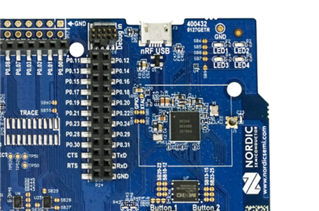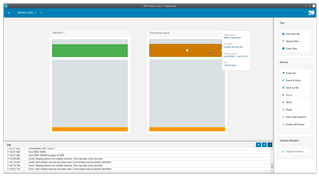Hi,
I am aware, that I the PDK is deprecated and I plan to use a nRF5340-DK in the near future.
However, I would like to make use of the PDK I have sitting around and thus tried to convert it to a BT 5-enabled USB Dongle using the HCI USB sample.
I built the sample `hci_usb` from Zephyr (version 2.5.0) using `west build -b nrf5340pdk_nrf5340_cpuappns --pristine` which automatically included the `hci_rpmsg` as child image due to CONFIG_BT_RPMSG_NRF53 being set to 'y'. I flashed the combined image using `west flash --erase` and UART console output showed:
[17:14:08:809] *** Booting Zephyr OS version 2.4.99 ***␍␊
[17:14:08:812] Bluetooth over USB sample␍␊
Eager to try it out, I ran `hciconfig` on my Ubuntu 19.10 machine with BlueZ 5.50 and did not see an additional Bluetooth adapter. `lsusb` still shows the nRF53 as JLink device.
I'd like to narrow down the problem:
- did I do something wrong during the build or flashing process?
- is the nRF5340 PDK incompatible with this example? https://developer.nordicsemi.com/nRF_Connect_SDK/doc/latest/nrf/ug_nrf5340.html#building-and-programming-a-sample states, that most examples should work but have not been tested thoroughly with the nRF53
- is the problem caused by my Ubuntu?
- has anyone managed to run this example on a nRF53, be it the PDK or DK?
Any response is appreciated!
Martin




